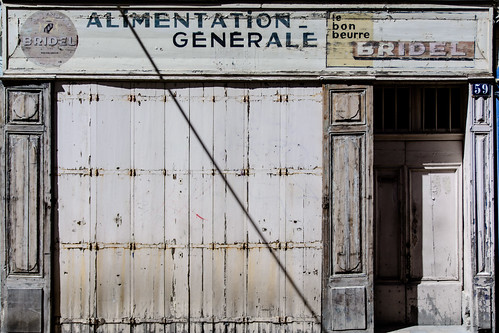From the category archives:
Academia
Most discussion of energy storage that I’ve seen has focused on batteries, with occasional mentions of pumped hydro. But in the last week, I’ve seen announcements of big investments in quite different technologies. Goldman Sachs just put $250 million ($US, I think) into a firm that claims to worked out the bugs that have prevented the use of compressed air storage until now
And several companies are working on gravity storage (raising and lowering massive blocks) to store and release energy
Underlying these points is a crucial fact in physics/engineering: Any reversible physical process is an energy storage technology.
That’s why concerns about the variability of wind and solar power will come to nothing in the end
[click to continue…]The Northeast Workshop to Learn About Multicultural Philosophy (NEWLAMP) is designed to equip philosophy professors with the competency to integrate modules on traditionally underrepresented areas of philosophy into their undergraduate philosophy courses. For its first edition, which will take place at Northeastern University in Boston, July 11-15, 2022, NEWLAMP will focus on African and Africana social and political philosophy.
Three experts will lead the workshop:
- Chike Jeffers, Associate Professor of Philosophy and Canadian Studies at Dalhousie University
- Denise James, Associate Professor of Philosophy and director of the Women’s and Gender Studies Program at University of Dayton
- Lucius Outlaw, Jr., W. Alton Jones Professor of Philosophy at Vanderbilt University
Twenty participants will be selected to attend the workshop. We encourage applications from adjuncts, community college or regional university professors, and other underfunded faculty across North America. Financial aid will be available to help cover travel and lodging costs for those without available professional funds to cover attendance. There is no registration fee.
A student asks: Who are some philosophers doing work in social and political philosophy whose writing style you admire?
I have some preferences — names that came to the top of my head immediately, for different reasons, were: Alex Guerrero, Brian Barry (sometimes), Debra Satz, Seana Schiffrin, Tommie Shelby, and, actually, all the political philosophers here. Personally I only occasionally admire the writing of people whose work I don’t think is very good, and would always flag that I am recommending only for the style not the content. (My student knows that my judgment of whether work is good isn’t much affected by whether I agree with it). But, I’m curious how other people here would answer the question. And why.
This was the funniest moment of the semester, in my undergraduate political philosophy class. We had recently read one of Ingrid’s excellent papers on limitarianism, but were now discussion inequalities in higher education.
Student 1: My sister goes to an Ivy League school and you wouldn’t believe what her friends do, going off to ski in Colorado for the weekend, debutante balls, the lot.
Me: I had no idea there are still debutante balls.
Student 2: They have them in Louisville.
Me: I don’t believe they have them in Louisville.
Student 2: Why’s that? You think Louisville is poor?
Me: No…. I just, I dunno, think of them as an East Coast phenomenon.
Student 2 (witheringly): Harry, you know there are rich people everywhere.
Just before Christmas, I published a piece in The Interpreter (Lowy Institute) arguing that most of the claims made by the contending parties in the South China Sea are myths designed to promote the interests of nationalists and militarists in a variety of countries, including Australia. Final paras
The mutual sabre-rattling associated with South China Sea mythology is beneficial to a variety of actors in the United States, China and elsewhere. The military-industrial complex, against which President Eisenhower warned 60 years ago, is powerful in every country, and always seeks to promote preparation for large-scale war as well as the routine use of military power for political and commercial ends. Nationalist politicians promote territorial claims of all kinds, and exaggerate their importance. And both Chinese and Taiwanese governments have good reasons to keep the idea of an invasion of Taiwan alive.
Unfortunately, these myths are not harmless. The possibility that the United States and China will somehow blunder into war is ever-present. And if such a war broke out, Australia would have a choice of bad options: either a disastrous war with its biggest trading partner or a breach with its most important ally. Rather than joining the alarmist chorus, the government should be seeking to reduce tensions.
The week before Christmas is traditionally a time to publish for those who want to avoid attention, so my timing wasn’t ideal. But in the New Year there has been a bit more interest. I was interviewed by CNBC Asia and Radio Free Asia, and there have been a few republications/
To start the blog for 2022, an open thread, where you can comment on any topic. Moderation and standard rules still apply. Lengthy side discussions on other posts will be diverted here. Enjoy!

So, I had promised a Part 2, and here it is. As I anticipated in Part 1, Graeber and Wengrow suggest that we should look at early Modern and Modern exchanges between, especially, Europeans and native North-Americans in a different way. If we take seriously what European intellectuals, missionaries and explorers of the time report, the story they tell us is one of encounters characterised by muscular, vibrant debates about the merits of different social arrangements and life-styles. Crucially, in these debates, both parties were active, passionate participants, and indigenous intellectuals had very sharp criticisms to make to western political structures, as they were getting to know them. This is not the central thesis of the book (which is about early humans, recall), but it is put forward as a clue to the fact that we might have a tendency to stubbornly deny certain pieces of evidence – even when they lie in front of us, in plain sight. [click to continue…]
In Justice, Gender, and the Family, Susan Okin wrote about a cartoon she once saw. “Three elderly, robed male justices are depicted, looking down with astonishment at their very pregnant bellies. One says to the others, without further elaboration: ‘Perhaps we’d better reconsider that decision.’” (102).
I read that book for the first time over a decade ago now, but that comic stayed with me for a long time. On the one hand, it seemed like such a clever way to make a very big and important point. On the other hand, when I tried to nail down the exact content of that point, I found myself bristling at it.
[click to continue…]
In the Board of the Human Development and Capability Association (HDCA), where I’m currently serving as past-president, there has been an intensifying of the debate on the climate consequences of the annual conference. The HDCA is an international association of mainly academics, though it also attracts policy makers, activists, and others, who are interested in the human development approach (best-known from the UNDP’s Human Development Reports) and one of the main theoretical frameworks underpinning it, the capability approach.
The essence of the tension is clear: there is a significant cost in terms of greenhousegas-emissions of flying to another corner of the world to attend a three-day conference; greenhousegas-emissions need to be reduced as drastically and fast as possible in order to protect the climate, and a stable climate is an important precondition for human flourishing/human development. So what should an organisation such as the HDCA, or its individual members, do with this tension? Clearly, all academics still flying to conferences should ask themselves this question. Hence, let’s open up the discussion here, and see what insights (or good ideas) you might have. [click to continue…]
For just over a year before Crooked Timber started, I had a blog called Junius. As the American right get more and more attracted by “natcon” views, I remember how shocked I was that even back then they could be quite sympathetic to the Franco regime. And I remembered I posted this (from May 2003):
Sasha Volokh, in the middle of a trip to Spain, comments on the Spanish Civil War and, frankly, shocks me:
…with every revolutionary construction of the war, Franco becomes more and more palatable to people like me, which means losing the support of any of the middle class or landowners and possibly even getting some of the Western democracies to intervene on Franco’s side. (I don’t know whether those countries would have the ability or desire to do that, but at least I, as a potential 1930s French or English voter (or Spanish resident), would have little difficulty choosing between Communists and Franco.)
This from someone who styles himself as a “libertarian” (I suspect these remarks reveal a greater concern for private property than for liberty). There were brutal massacres on both sides in the civil war, but the numbers slaughtered by the Francoists far exceeded those killed by the Republic and the graves of those executed are still being discovered today. What of the Francoist vision of society? Here’s Antony Beevor from his The Spanish Civil War, describing the social order imposed by the Francoists:
Every Spaniard was decreed to be a Catholic; divorce and civil marriage had been instantly abolished in Nationalist territory; and the penalty for abortion was made even greater than under the monarchy. The orphans of Republicans killed in the purges were forcibly baptized and given new Christian names. The church was in a position to establish a thorough control of public morals. One of their posters ordered: ‘No immoral dances, no indecent frocks, no bare legs, no heathen beaches.’ (The Falange, meanwhile, seized girls on the street whom they considered to be immodestly dressed and cropped their hair forcibly.(p. 385)….
According the the Falange, the state would only be ‘strong if the woman at home is healthy, fecund, hard-working and happy.’ She was therefore liberated ‘from having to work outside the home’, which meant that she was barred from practically all jobs except that of a domestic servant.(p. 387)
There are pages of this kind of thing. I realize that Mr Volokh may have good reasons for hostility to the Communist Party, but in the passage I quoted from him he is explicitly imagining himself as an English, French or Spanish person of the 1930s (I wonder how he can be so sure of what his reactions would have been?). The regime imposed by the Francoists had many Taliban-like features and even middle-class voters with property have daughters! Of course, the Taliban (not to mention many other brutal dictatorships) owed their success to a similar anyone-but-the-communists attitude.
Another open thread, where you can comment on any topic. Moderation and standard rules still apply. Lengthy side discussions on other posts will be diverted here. Enjoy!



